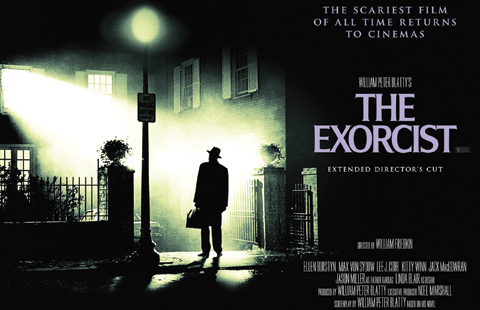 .
."The Exorcist" TV series that Fox will unveil this fall takes place in the same universe occupied by the iconic William Friedkin film, producers said at the Television Critics Association panel for the show. The drama, which premieres Sept 23, takes place in Chicago, 40 years after the events depicted in the film. There will be nods to the original, including occasional use of the Mike Oldfield composition "Tubular Bells" -- though the TV "Exorcist" won't be able to use it too often, because it's a not a cheap song to license, according to executive producer and director Rupert Wyatt. "We never set out to use it," Wyatt said. But eventually, after a bit of prodding, the producers "tried it at the end of the [pilot] cut, and we realized that it worked."
Related Fox Chiefs Talk Reboots, 'X-Files' Future and Strains of Peak TV Era "If you can earn something through the story," then it should go in, he said. "It was always our intent not to just plaster it on for the sake of homage." In another scene, there is mention of the priests who appeared in the film, noted executive producer Jeremy Slater. "It was important to let everyone know that this is a continuation of an existing story," said Slater. Those acknowledgements are in the first episode, and they're there in part to indicate that decades have passed, and audience members should not expect Fathers Karras and Merrin to "show up" at the home of the Rance family, whose plight occupies much of the ten-episode first season.
Evil insinuating
Slater, Wyatt and the cast noted that one of their biggest goals was to carry over the grounded tone and realistic atmosphere of the first "Exorcist" film. Wyatt, who directed the pilot, noted that Friedkin had a background in documentary film before helming feature films. "He was approaching it as an agnostic or as an ambivalent [person] -- the notion of evil insinuating itself into a situation, and whether that is demonic possession or part of the psychological makeup of the person," Wyatt said. "That's part of what made it wholly terrifying-that it was so plausible." "I believe there is evil in the world and we have certainly seen instances of it historically, and currently," said Geena Davis, who plays Angela Rance in the drama. "I think everyone is capable of an extreme range of behaviors, depending on what you're exposed to and what your character can resist."
Davis, the founder of the Geena Davis Institute on Gender in Media, noted that the producers were well aware of the extensive work she has done to combat sexist Hollywood practices and stereotypes in the media. "When I was first approached, they were very earnest about letting me know" that they wanted her feedback and input, Davis said. Half the show's writers and two of its directors are women, she noted, and she also said that the arcs of the female characters were, in many ways, the dominant parts of the story.
Twists and turns
"I haven't really had to bust anybody on anything," she said. "I think they're going out of their way so that I can be extremely proud of the show." Though it shares many aspects of the original-a family in crisis and priests who attempt to help-this version of "The Exorcist" will layer in the building blocks of a mythology that, in theory, would allow the show to run for some time. "This time around, evil has grander ambitions than targeting an eight-year-old girl in Georgetown," Slater said. Though this bigger story structure will be constructed around the Vances, the family and their relationships will remain the entry points for the audience.
"You need the propulsive twists and turns, and we have plenty of big plot twists, but at the end of the day, it's always going to be about a family in trouble and the priests brought in to help them," Slater said. If audiences didn't become involved in the characters, "we haven't done our jobs." There are scares, Slater said, but it's not a show that will deliver lots of gore every week. "We're learning a lot about what you can and can't accomplish on a TV budget," Slater said. "You have to be very judicious and smart about when you use your scares-you don't want to numb the audience. ... The audience knows the horror is coming, and as long as their patience is rewarded, the pressure is to tell the best story possible, not to tell the most shocking or gratuitous story possible."
"There have been 40 years of inferior ['Exorcist'] imitations coming along to dilute the source material, but luckily we have a lot of horror fans behind the scenes, so we can point out, 'Yes, that's been done before,'" he added. "It's a blessing and a curse, because it forces you to be better writers and creators. It forces you to come up with new scares and new ways to creep people out."-Reuters










